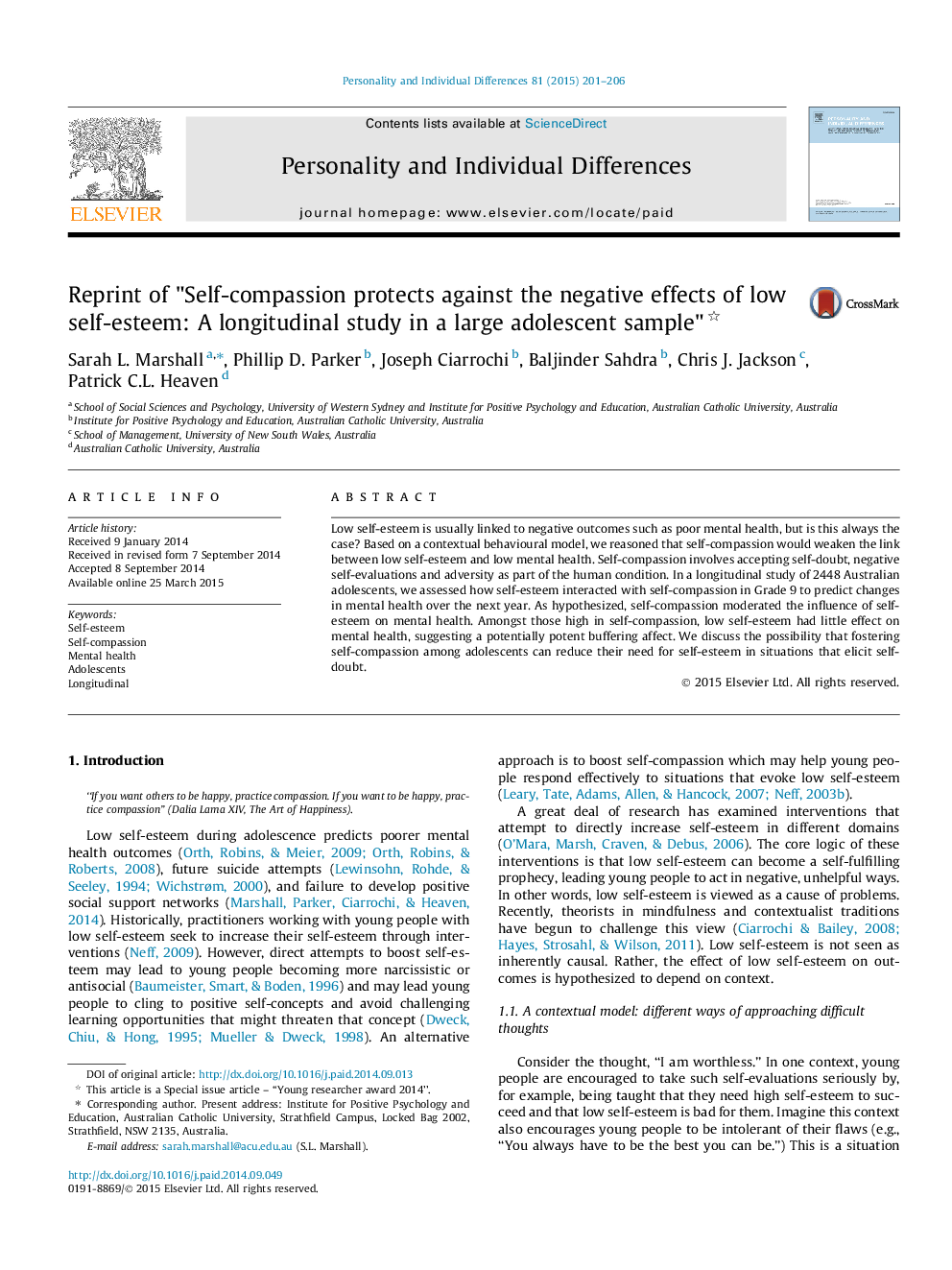| Article ID | Journal | Published Year | Pages | File Type |
|---|---|---|---|---|
| 890068 | Personality and Individual Differences | 2015 | 6 Pages |
•Low self-esteem predicts poor mental health, but only amongst those adolescents who are low in self-compassion.•Low self-esteem had little negative effects on those high in self-compassion.•Self-esteem and self-compassion are statistically distinguishable.•Self-compassion training may help young people to respond effectively to self-doubt.
Low self-esteem is usually linked to negative outcomes such as poor mental health, but is this always the case? Based on a contextual behavioural model, we reasoned that self-compassion would weaken the link between low self-esteem and low mental health. Self-compassion involves accepting self-doubt, negative self-evaluations and adversity as part of the human condition. In a longitudinal study of 2448 Australian adolescents, we assessed how self-esteem interacted with self-compassion in Grade 9 to predict changes in mental health over the next year. As hypothesized, self-compassion moderated the influence of self-esteem on mental health. Amongst those high in self-compassion, low self-esteem had little effect on mental health, suggesting a potentially potent buffering affect. We discuss the possibility that fostering self-compassion among adolescents can reduce their need for self-esteem in situations that elicit self-doubt.
